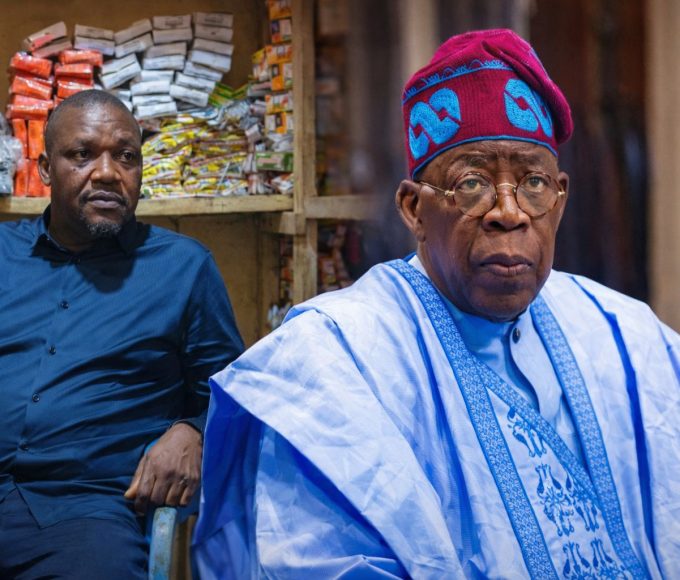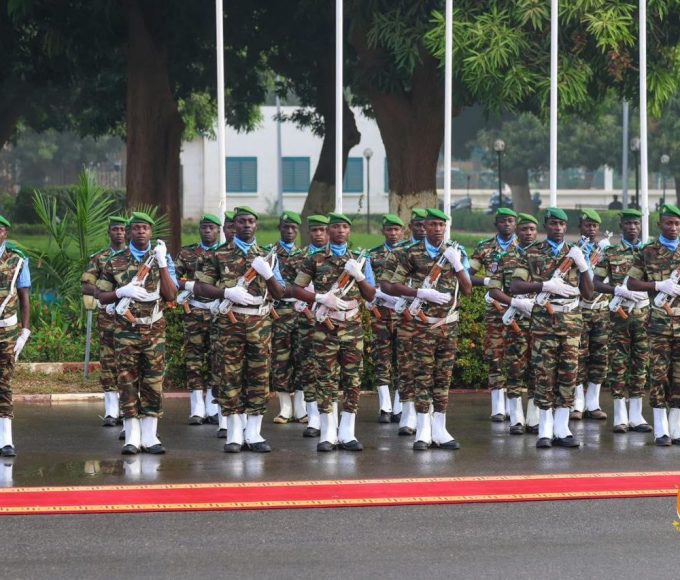
Everything You Know About Africa Might Be a Lie: The Scripted Continent and How the West Engineered Its Story Before It Happened

What if the negative perceptions surrounding Africa are not simply organic but a result of long-term strategic planning by Western powers? Rather than being spontaneous, these narratives, amplified by Western media, align with declassified documents such as the Kissinger Report and future-gazing scenarios from the Rockefeller Foundation, pointing to a calculated effort to influence Africa’s trajectory and maintain control over its vast resources.
The Kissinger Report, drafted in 1974 as National Security Study Memorandum 200 (NSSM 200), is one of the earliest examples of this planning. Commissioned by then-Secretary of State Henry Kissinger, it identified Nigeria as one of 13 countries whose population growth and resource wealth posed potential threats to U.S. interests. The report laid out strategies for controlling both resources and population, marking a clear intent to manage Africa’s future through policy.
Years later, in 2010, the Rockefeller Foundation’s scenario exercises introduced “Lock Step” narratives, which speculated on Africa’s future all the way to 2028. These included references to Nigeria’s potential government collapse in 2026, disrupted intercontinental trade due to strict pathogen controls in 2015, and debates over whether Africa would embrace an authoritarian capitalism modelled after China by 2018. While presented as hypothetical, these scenarios outlined frameworks that pre-shaped how African developments would be perceived globally, often foreshadowing instability and dependency.
The role of Western media in amplifying these frameworks is essential to the execution of these long-term plans, systematically shaping global perceptions of Africa to align with strategic Western interests. Bad news about Africa, sells, and Western media readily propagates narratives that serve the Western agenda, driven by commercial interests, socio-cultural bias, and political concerns.
For centuries, from the 16th to the 19th, colonial administrators and missionaries disseminated ideas about Africa, portraying it as culturally, intellectually, politically, and technically backward. Africa was portrayed as backward, uncivilised, and in constant need of aid. This tradition persists today through print and electronic media, creating a distorted image and framing Africa through disaster, disease, famine, and corruption, while ignoring innovation and resilience. Western media outlets often resort to sensationalism, emphasising catastrophes and oversimplifying crises, frequently with ubiquitous imagery of suffering, such as children with distended stomachs and flies.
Several misconceptions dominate this narrative. Africa is portrayed as technologically stagnant despite being the fastest-growing region for mobile technology and digital innovation. Its education systems are frequently dismissed, with images of children in the wild overshadowing rising literacy rates. Diseases such as Ebola, AIDS, and COVID-19 are often presented as defining features of the continent, reinforcing the idea of Africa as diseased and dependent.
Overpopulation is another common trope, promoted by Western figures and media without acknowledgement of Africa’s vast land and potential for demographic advantage. Above all, the continent is often reduced to a single homogenous entity, “the Dark Continent”, ignoring its 54 nations and over 2,000 languages. Hollywood movies historically depicted Africa as ignorant and uncivilised, showing children hunting in the wild instead of attending schools, despite increasing literacy rates.
This carefully reported narrative, rooted in historical biases, has become a self-fulfilling prophecy, shaping global perceptions and justifying external interventions. A central mechanism in this narrative control is the process of “othering,” where Africa is deliberately portrayed in a negative, antagonistic light, creating a perceived identity that contrasts with an idealised Western self-image. This “othering” constructs Africa as weak, autocratic, and perpetually dependent, thereby justifying Western developmental interventions and perpetuating unequal power structures that date back to the colonial past.
This narrative control is seen in numerous cases, such as the 2019 job advertisement for a Nairobi bureau chief by The New York Times, which was widely criticised for echoing problematic stereotypes about Africa. In 2000, The Economist famously ran a cover titled “Hopeless Africa,” drawing complaints and highlighting a deep-seated perspective within Western journalism. In 1995, a Chicago Tribune report on Sierra Leone portrayed its wars as lacking defined goals and fueled by economic desperation. This report neglected to mention that Charles Taylor, a key figure in Liberia’s misery, was primarily sponsored by the CIA, a fact later reported by the BBC.
Western media’s reporting on conflicts, like the Tigray war, has been accused of being flagrantly biased, ignoring Ethiopian perspectives and relying on questionable sources. Reports also showed major news brands using photos of suffering from areas like Amhara or Afar to illustrate stories focused solely on Tigray, and the BBC once ran an unverified TPLF accusation with an irrelevant image of hyenas from Harar, nowhere near Tigray. CNN even published a report with a disclaimer that it
“cannot confirm the original device the five videos were filmed on, who filmed them, the date they were filmed or whether they were selectively edited,” despite it being a major story.
Western media outlets often highlight corruption in African governments. At the same time, it omits the role of Western political structures and multinational corporations in exploiting resources, supporting dictatorial regimes, and exporting weapons to conflict regions. This serves to justify Western intervention and economic exploitation. The financial ramifications are significant. Persistent negative stereotypes lead to Africa losing up to £3.2 billion annually in inflated interest payments on sovereign debt, due to heightened perceptions of risk.
Beyond economics, this continuous depiction causes low self-esteem among Africans, fostering feelings of inferiority and a loss of confidence in their own cultures, languages, and identities. It can lead Africans to internalise the belief that “if it is African or black, it is not good enough.” This affects Africans living abroad, who may face prejudice or be underestimated due to these prevailing negative perceptions.
However, resistance to this narrative is growing. African scholars, journalists, and leaders argue for the need to reclaim control over the continent’s image by investing in local media, modern technologies, and independent broadcasting networks. They stress that Africans themselves must dismantle dependency and take ownership of their stories, presenting Africa’s diversity, achievements, and resilience from an insider’s perspective. Young Africans are already leading this charge through social media, challenging stereotypes and redefining the way the continent is seen.
Unless Africa tells its own story, the warning goes, others will continue to say to it instead, and to Africa’s detriment.
Read More:
About The Author
Related Articles
Tinubu Government Claims Intelligence Cooperation With the US, Yet New York Times Publishes Conflicting Story Following $9 Million US Lobbying Effort
When the New York Times published its investigation suggesting that claims from...
ByWest Africa WeeklyJanuary 19, 2026Mali’s Transition Leader Attends Swearing-In of Guinea’s President Mamadi Doumbouya
Mali’s President of the Transition, General Assimi Goïta, represented the country in...
ByWest Africa WeeklyJanuary 19, 2026Niger’s Security Forces Record Major Gains Against Armed Groups
Niger’s Defence and Security Forces have reported significant results following a week...
ByWest Africa WeeklyJanuary 19, 2026Burkina Faso Adopts Law Defining Status of Traditional and Customary Chiefs
Burkina Faso’s Transitional Legislative Assembly has adopted a new law establishing the...
ByWest Africa WeeklyJanuary 19, 2026












Leave a comment